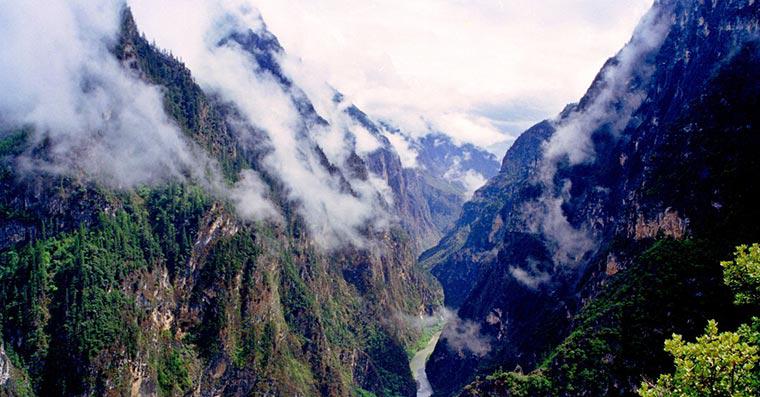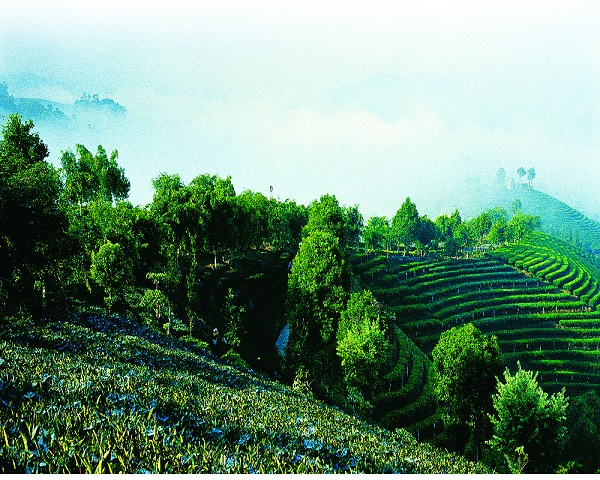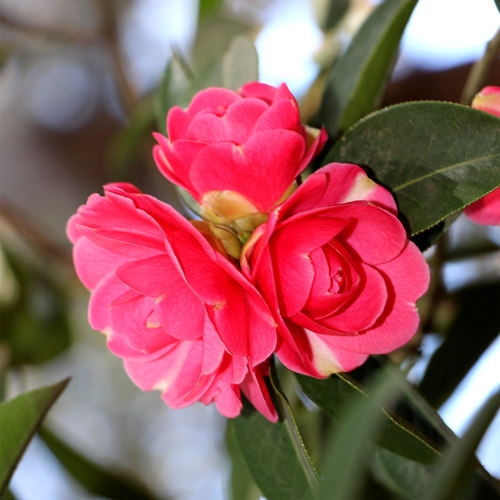
Detailed Introduction to Tonghai County of Yuxi
Tonghai County, located in the southeastern part of Yuxi City, Yunnan Province, is a region rich in history, cultural diversity, and natural beauty. Known for its stunning landscapes, including lakes and mountains, as well as its significant role in agriculture and ancient culture, Tonghai is a charming destination that blends the old with the new. Here’s a detailed introduction to Tonghai County:
Geographical Location
Tonghai County is situated in the southeastern part of Yuxi City, Yunnan Province, and lies about 130 kilometers from Kunming, the provincial capital. It covers an area of around 753 square kilometers. The county is nestled in a mountainous region, with a diverse landscape that includes rolling hills, lakes, and plains, making it a picturesque area with a mild climate ideal for agriculture and tourism. One of the highlights of Tonghai's geography is Qilu Lake, a prominent body of water that contributes to the local ecosystem and economy.
History
Tonghai County has a history that stretches back over two millennia, with its origins linked to early human settlements in the region. During the Ming and Qing dynasties, Tonghai was a significant administrative and cultural center in Yunnan due to its strategic location along the trade routes connecting the interior of Yunnan with neighboring provinces. The county also played a key role in the spread of Buddhism and Confucianism in the region, which is reflected in its many temples and cultural sites.
Tonghai is particularly famous for its Xiushan Mountain and the ancient Buddhist temples that sit atop it. The area has long been a place of pilgrimage and meditation, attracting religious devotees and scholars throughout its history.
Economy
The economy of Tonghai County is based on a mix of agriculture, aquaculture, and tourism, with traditional industries increasingly supported by modern development.
Agriculture: The fertile land and favorable climate of Tonghai make it an important agricultural hub within Yuxi. The county is known for producing high-quality rice, tobacco, fruits, vegetables, and flowers. Tonghai's tobacco is particularly famous, and it plays a significant role in Yunnan’s tobacco industry. Modern agricultural practices have been adopted in the area, improving productivity and ensuring sustainability. In recent years, the cultivation of flowers, especially for export, has also become an important economic driver.
Aquaculture: Qilu Lake, one of the largest lakes in the county, supports a thriving aquaculture industry. The lake is home to a variety of fish species, and the local fishery industry is a vital part of the county’s economy. Fish farming, particularly of carp and tilapia, provides employment and contributes to the local food supply.
Tourism: Tourism has grown steadily in Tonghai due to its natural beauty, historical significance, and cultural attractions. Visitors are drawn to its scenic lakes, ancient temples, and traditional festivals. The county’s tourism industry benefits from its proximity to Kunming, making it an accessible destination for both domestic and international tourists.
Cultural Heritage
Tonghai County is rich in cultural heritage, with a diverse population that includes the Han, Hui, Yi, and other ethnic groups. This diversity is reflected in the county’s cultural practices, festivals, and architectural styles.
Xiushan Mountain (秀山): Xiushan is one of Tonghai's most famous cultural and religious landmarks. The mountain is home to several ancient temples, including the Xiushan Temple, which dates back over 500 years. The temple complex is dedicated to Buddhism and features beautiful pagodas, ancient trees, and scenic views of the surrounding area. Xiushan Mountain has long been a place of spiritual importance, attracting pilgrims from across China.
Qilu Lake (杞麓湖): Qilu Lake is another significant feature of Tonghai’s landscape, offering both ecological and recreational value. The lake has historically been central to the county’s fishing industry and is now a popular spot for tourists looking to enjoy boating, birdwatching, and lakeside relaxation. The area around the lake is also home to several ancient villages, where traditional lifestyles and architecture have been preserved.
Tonghai Confucian Temple (通海文庙): The Tonghai Confucian Temple, built during the Ming Dynasty, is one of the best-preserved Confucian temples in Yunnan. It serves as a cultural hub, showcasing the region’s deep connection to Confucian thought and education. The temple is surrounded by classical Chinese gardens and ancient stone structures, making it a popular destination for visitors interested in Chinese philosophy and history.
Ethnic Festivals: The diverse ethnic makeup of Tonghai gives rise to a varie



